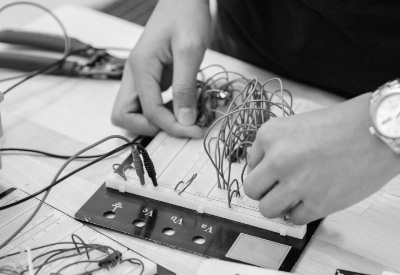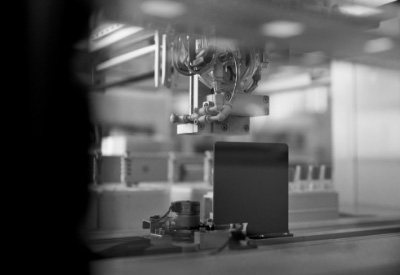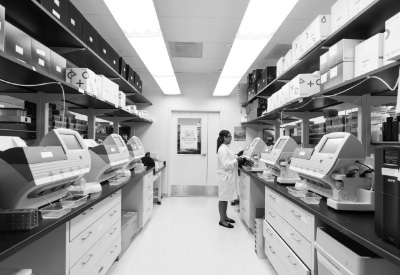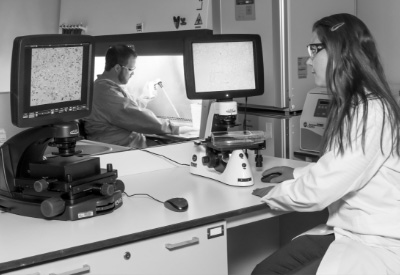
It is an exciting era for microelectronic devices, with global and nationwide efforts propelling research, innovation, and groundbreaking discoveries. Recent technological advances have revolutionized microelectronic devices, overcoming previous limitations and resulting in faster, more efficient, and highly portable electronics.
City Labs, a global leader in nuclear battery technology, is pioneering remarkable innovations like NanoTritium™ batteries to drive advancements in the microelectronics field. NanoTritium™ technology incorporates betavoltaic conversion and the radioactive decay of tritium to build ultra-low-power batteries that can run for several decades on a single charge. Microelectronic devices powered by low-power energy sources like NanoTritium™ batteries are now venturing into unexplored territory in the electronics field. City Labs is committed to continuously developing new use cases and applications to further expand this potential.
Michigan Micro Mote Supercomputer
The Michigan Micro Mote (M3) is a fully autonomous computing and smart sensing system developed by a team led by Professor David Blaauw at the University of Michigan. The M3 made history as the smallest computer system in the world, measuring less than half a centimeter. For the M3 to be deemed a complete and fully functional computer, it had to receive data inputs, process and store incoming data, have computational capabilities to determine the actions to be taken with the received data, and have the capacity to output the data to an external device.
Importance of the M3
The M3 represents an important milestone for the “internet of things” (IoT), which refers to physical objects equipped with sensors, processing capabilities, software, and other vital technologies. These features in turn enable remote connectivity and data exchange with other devices, systems, and individuals. IoT technology is perhaps best illustrated by “smart home” appliances, where several devices communicate with one another to control various home appliances, such as heating and cooling, security systems, lighting, etc.
In the IoT era, device size and power reign supreme. Smaller computers and sensors are highly desirable for such tasks because they are less intrusive. However, to perform their core functions, they require compact yet powerful energy sources. The M3 illustrates how functionality, size, and power can work together to create small but effective microelectronic devices.
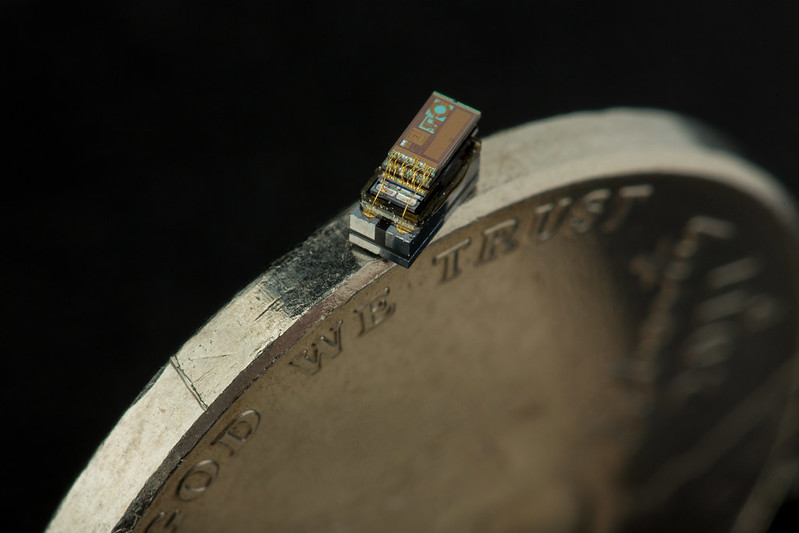
Image courtesy of University of Michigan
City Labs’ Contribution
A similarly small power source was necessary to power the exceptionally compact smart sensing systems found on the M3. City Labs, known for expertise in manufacturing low- and ultra-low-power batteries for microelectronic devices, provided the ideal solution for powering the M3‘s routine temperature measurements, data storage, and data transmission requirements with our early betavoltaic batteries. The M3 exemplifies a prime use case for City Labs’ low-power batteries, ensuring long-lasting power for the core functions of microelectronic sensors for decades to come.
Texas Instruments MSP430 Microcontroller
City Labs is not alone in making advancements in the microelectronics field. Texas Instruments (TI) is another key industry player that has gained deserved attention for its TI MSP430 Microcontroller line.
Microcontrollers are compact integrated circuits specifically engineered to govern essential device operations, even when the device is not powered on. While microcontrollers depend on external power supplies to remain operational, they have extremely low power requirements, making them an excellent match for low-power batteries.
Importance of the TI MSP430
Texas Instruments revolutionized microcontrollers with the MSP430 microcontroller line thanks to its combination of low cost and low power consumption. The TI MSP430 line can power crucial embedded computer systems, which encompass computer processors, computer memory, and input/output devices that execute specific functions within a larger electronic system. The extensive range of MSP430 microcontrollers guarantees the availability of flexible, low-cost, and low-power solutions to power the latest and most advanced computer technology and embedded applications as they continue evolving in complexity.
CubeWorks Cold Chain Monitoring Sensors
Low-power smart sensors have also recently been employed by the biopharmaceutical industry, with the invention of the CubiSens™ XT1 NFC by CubeWorks. The primary purpose of the XT1 NFC is to act as a wireless temperature tracker for biopharmaceutical shipments to ensure temperature compliance and product efficacy.
This compact, lightweight, and low-power technology will be crucial in addressing significant challenges within the pharmaceutical industry’s cold chain. The cold chain refers to the critical temperature management for perishable products, ensuring the maintenance of end product quality and safety from the point of origin to the end consumer.
How Betavoltaic Power Sources Can Improve Cold Chain Sensors
Betavoltaic power sources like City Labs’ NanoTritium™ batteries are the perfect companion for devices like the CubiSens™ XT1 NFC due to their low-power requirements and small size. An XT1 NFC powered by a NanoTritium™ battery could monitor temperature conditions for biopharmaceuticals during shipment and long-term storage, as these batteries have been tested to operate for several decades at temperatures as low as -55°C and can even still operate at a lower temperature.
Ambiq Micro Chips to Lower Power Usage
Ambiq is another company helping to shape the future of electronics through the development of highly efficient and low-power semiconductors. Ambiq’s patented Subthreshold Power Optimized Technology (SPOT) platform reduces total system power consumption for all battery-powered endpoint devices, providing enhanced energy efficiency to improve the speed and overall functionality for sensors and other onboard systems.
Low-Power Chips With Long-Term Batteries
Like City Labs’ NanoTritium™ technology, Ambiq SPOT technology also prioritizes ultra-low rates of consumption while maximizing performance. By combining the technological strengths of Ambiq and City Labs, a wide range of flexible chip designs powered by ultra-low-power NanoTritium™ batteries could be feasibly created. These chips could function for several decades and cater to numerous device applications.
Working Together to Advance Microelectronics
Microelectronics is a massive field that any single company cannot realistically monopolize. The most effective approach to driving progress in the field involves collaboration among companies with shared interests and goals. By working together, microelectronics companies can rapidly drive technological advancements in ways that would be unattainable if pursued individually.
City Labs Is Always Searching for New Partners
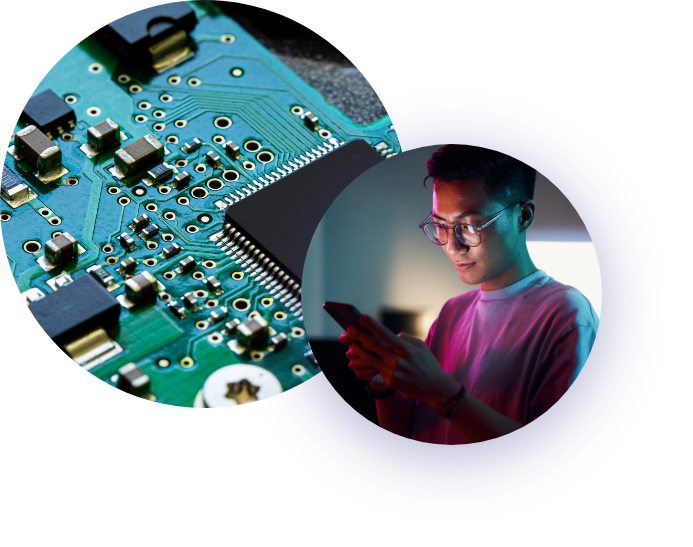
If you are interested in partnering with City Labs, please contact us. We would be delighted to explore opportunities for collaboration and discuss how we can collectively advance microelectronics science.
The Nuclear Battery Company With a Vision
Ready to power your next innovation or learn more about our technology?
Contact Us Today